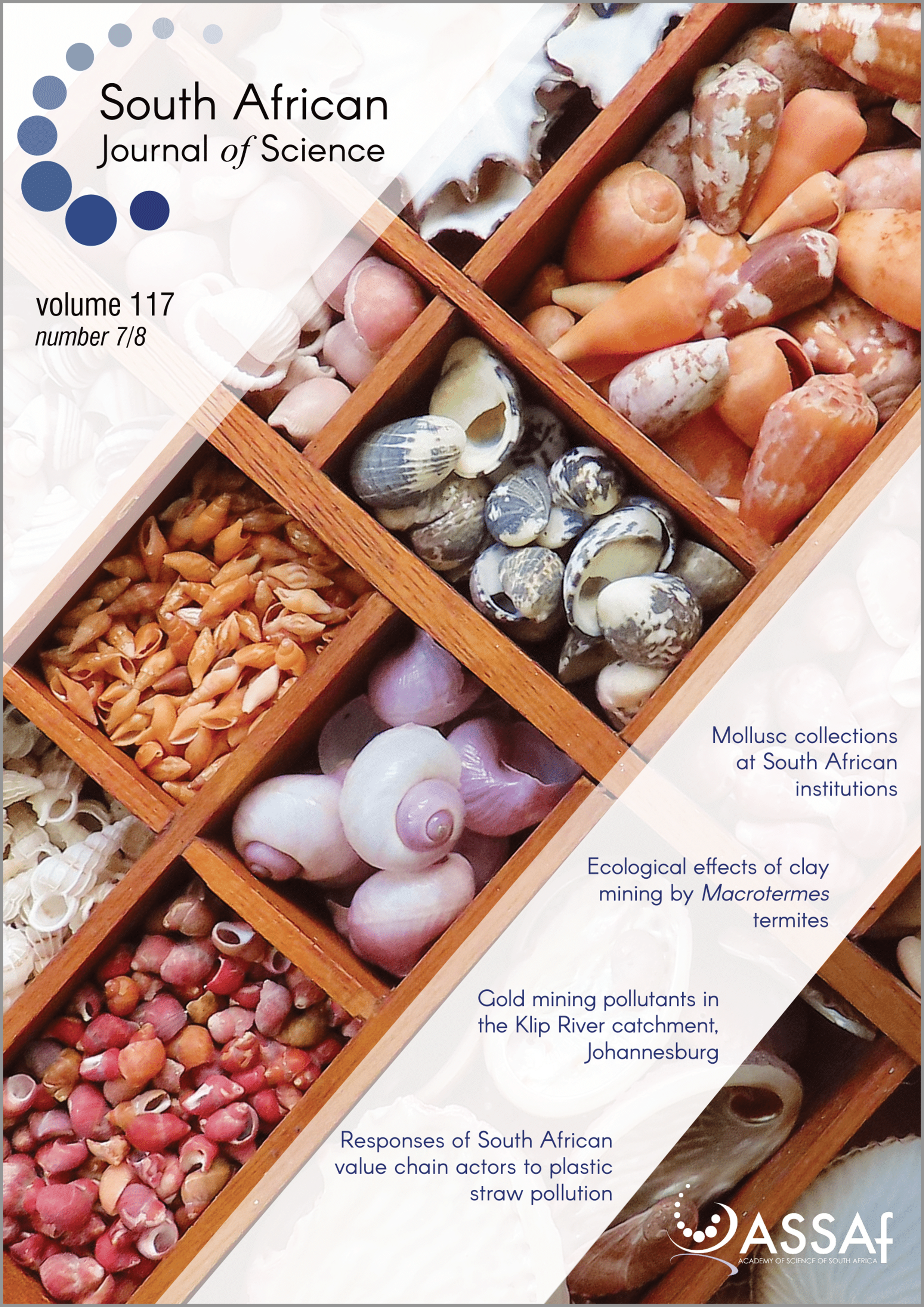Application of a soil quality triad in assessing ecological risk posed to croplands
DOI:
https://doi.org/10.17159/sajs.2021/8280Keywords:
environmental pollution, food security, integrated risk assessment, soil health, sustainable food productionAbstract
Healthy soil ecosystems fulfil multiple functions (e.g. cycling nutrients and controlling pests), which play an important role in sustainable food production. However, the application of polluted irrigation water poses a major risk to soil quality (health) and warrants investigation to ultimately inform decision-making. We hypothesised that the standardised soil quality TRIAD approach (ISO 19204), which integrates the chemistry, ecology, and ecotoxicology lines of evidence, can be used as part of an ecological risk assessment of cropland soils. To investigate the applicability of this approach in an agricultural setting, we collected soils from croplands associated with the Hartbeespoort and Crocodile (West) irrigation schemes, which utilise water known to be heavily impacted by anthropogenic (metal, nutrient, and salt) pollution. Croplands associated with the Marico-Bosveld Irrigation Scheme served as the reference systems. Data from the three lines of evidence were scaled, weighted, and integrated. Moderate risk was evidenced for nutrient and salt content in most croplands associated with the Hartbeespoort Irrigation Scheme. However, either no or low risk was recorded for the ecology and ecotoxicology lines of evidence. Finally, the integrated risk assessment concluded that only low ecological risk was posed to soil quality, likely as a result of agricultural activities (e.g. tillage and fertiliser application) that deteriorated soils also at the reference system. This study shows important limitations in the application of ecological risk assessments in conventionally farmed soils, but still holds promise for organic and conservation systems.
Significance:
- A pollution linkage between irrigation water and cropland soils was evidenced, but presented only minimal risk to soil quality.
- Conventional agricultural practices (e.g. tillage) mask the risk posed by environmental pollution and impair the applicability of ecological risk assessments.
- It is possible that this approach can be applied in less disturbed crop production systems, for example in conservation (regenerative) and organic croplands.
Downloads
Published
Issue
Section
License

All articles are published under a Creative Commons Attribution 4.0 International Licence
Copyright is retained by the authors. Readers are welcome to reproduce, share and adapt the content without permission provided the source is attributed.
Disclaimer: The publisher and editors accept no responsibility for statements made by the authors
How to Cite
- Abstract 785
- PDF 527
- EPUB 181
- XML 213
- Supplementary material 91













.png)